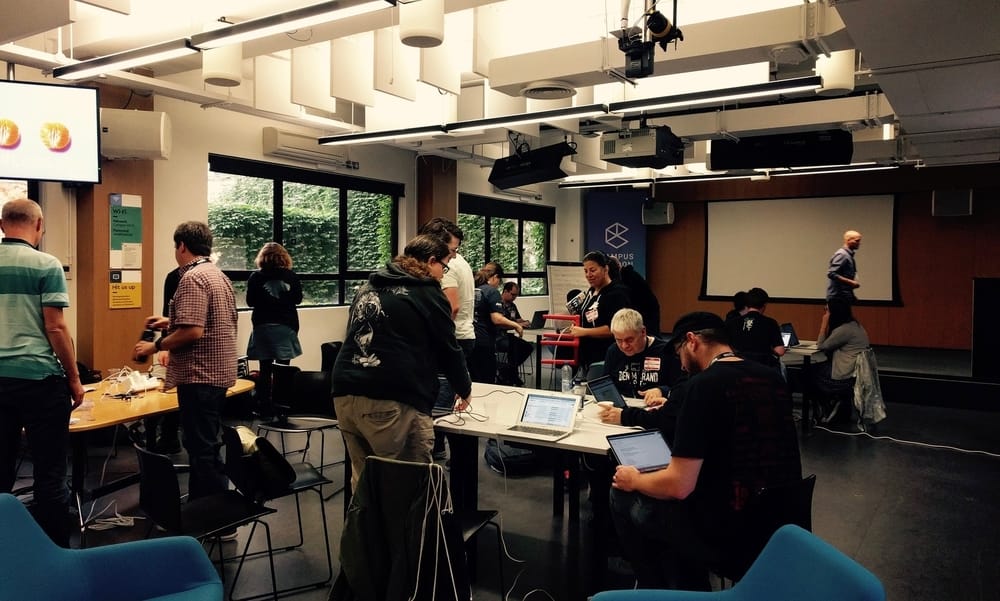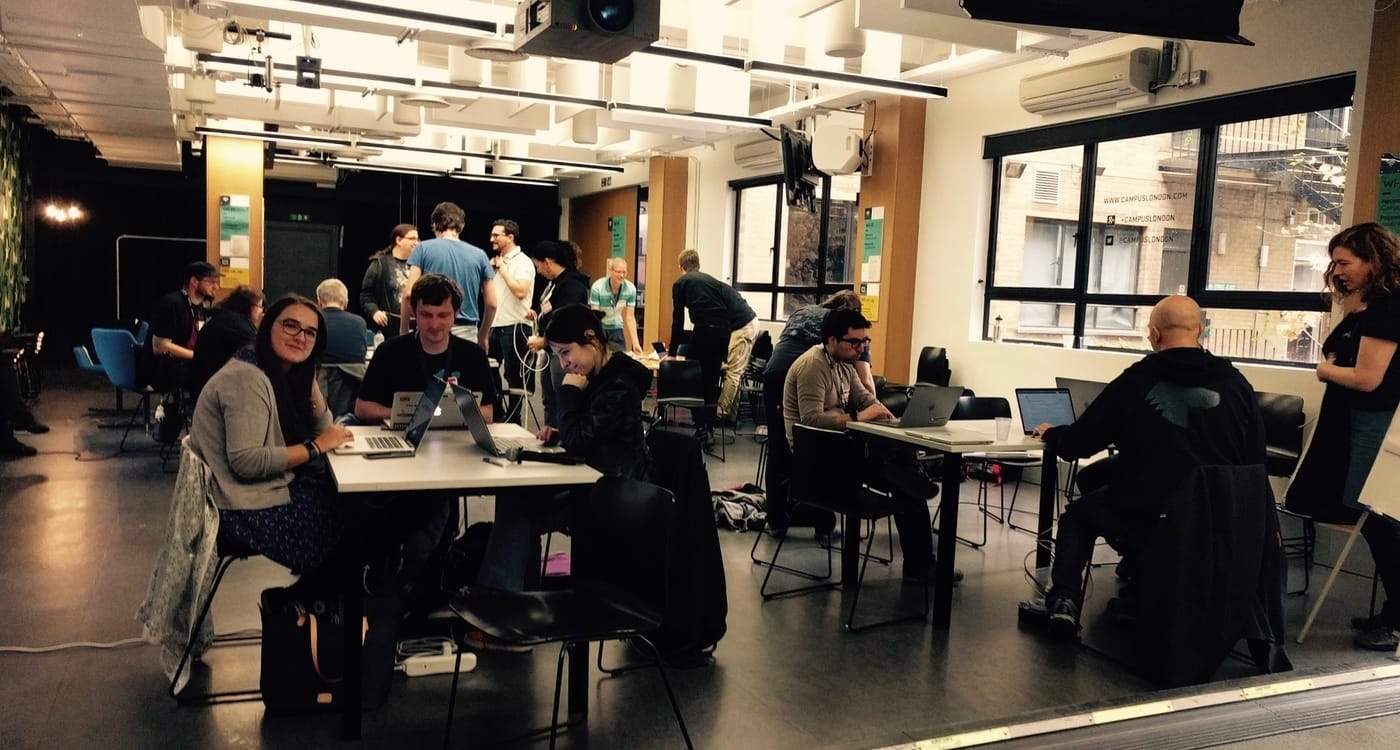This weekend I joined a bunch of web developers, tech writers, web standards lovegods and other friendly folks in London, to work on accessibility documentation for MDN, Mozilla’s platform for learning about web development.
I had a brilliant time, meeting familiar faces from social media IRL and catching up with others. Not only did I learn lots about nails and stools (thanks Seren and Estelle), it was also great to be amongst like-minded people to overhear deeply technical accessibility discussions between people who already wrote about accessibility when I wasn’t even born yet.
 Photo: Bruce Lawson, with a hipster filter added, as we were in Shoreditch
Photo: Bruce Lawson, with a hipster filter added, as we were in Shoreditch
On the first day we got to know each other and picked projects to work on. While others looked at adding screenreader compatibility data and documenting WAI-ARIA better, I teamed up with Seren, Eva and Glenda to improve and add accessibility information on MDN pages that were about non-accessibility topics.
What I liked about that particular project, is that it exposes accessibility knowledge to people who are not necessarily looking for it. If you want to know how order works in CSS, you get some information about how it affects screenreader users for free. I’m optimistic. I believe most developers will do the right thing for their users. As long as they have the information on what the right thing looks like in code, design, strategy, testing, et cetera.
After lunch a lot of us gave lightning talks! Eva talked about the problems of automatically translating content and making technical videos available with captions, and Michiel did a great TED-style talk on when to use ARIA. It was just one slide.
Although MDN is a developer network, there are pages for many others. So on the second day I worked on revamping the page Accessibility information for UI/UX designers. It was fairly outdated, so it felt sensible to replace it with more hands-on advice.
On the last day I continued work on that page and did a PR to improve icon accessibility. I also gave a short lightning talk entitled “Making password managers play ball with your login form”, which is also a blog post on this site.
 Photo: Bruce Lawson
Photo: Bruce Lawson
Others in the room did great work on getting screen reader compatibility data onto MDN, adding ARIA reference pages, cleaning up docs, modernising Spanish content, updating the WCAG reference with 2.1 content and improving MDN’s tooltips. There were also very informative lightning talks about focus styles, display properties and semantics, WCAG 2.1 and beyond (Silver) and accessible syntax highlighting.
It’s been a great three days. I’ve thoroughly enjoyed both doing contributions to MDN, as well as meeting and learning from like-minded people. And I’m proud we got so much done!
If you also want to contribute to MDN, all you need is a GitHub account. All pages have an ‘Edit’ button and people are more than welcome to help out.
Comments, likes & shares
No webmentions about this post yet! (Or I've broken my implementation)